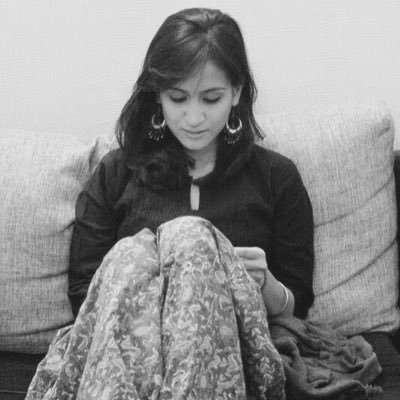Senti Tzudir started using drugs when he was 14. “Terrible… physically you might stop using, but mental addiction — that is the real hurdle,” says the 47-year-old.
“Back then almost everyone I knew was (addicted). It was fashionable to,” he says of the late 1980s, when drugs, especially heroin, would find its way across the border from Myanmar to the states of Manipur and Nagaland. “Every second person I bumped into the road was using. There was not much else to do.”
Those days, Nagaland was in the throes of a highly militarised conflict — a long running insurgency seeking to seek sovereignty from India. Even today the conflict is yet to find a resolution — the deadline for the final settlement of the Naga peace accord has lapsed.
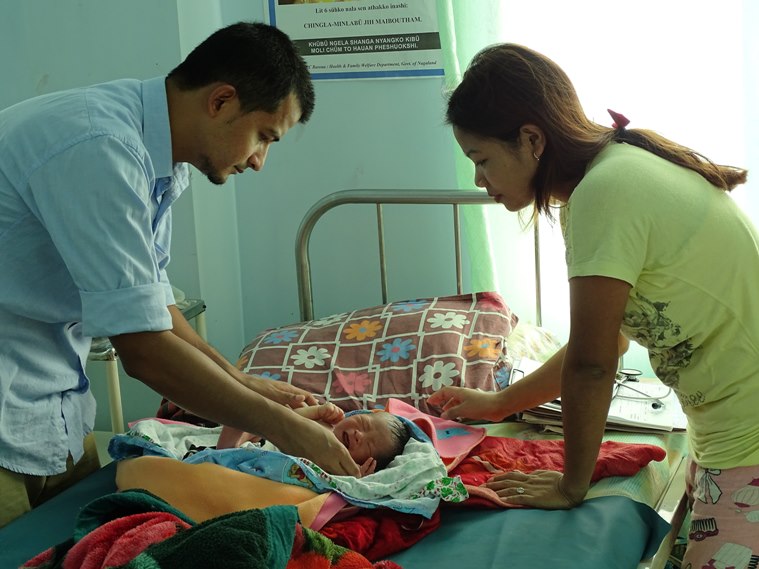 The House of Hope, earlier a rehabilitation centre, now functions as a Primary Health Centre and caters to visitors from three districts in Nagaland.
The House of Hope, earlier a rehabilitation centre, now functions as a Primary Health Centre and caters to visitors from three districts in Nagaland.
“But then it was much worse — there was no talk of a ceasefire, the conflict was raging, shootouts and ambushes every other day. The height of militancy. We lived through it all,” says Tzudir. But not without turning to drugs — which seemed to be in abundant supply in the small border state.
After multiple rehabilitation attempts in Dimapur, Tzudir decided to go to Tuensang, the state’s largest — but arguably the most backward — district, bordering Myanmar. An uncle had told him of a former pastor and his wife who ran a small rehabilitation centre. He was 24 then.
“The first day was hard. The second, harder still,” remembers Tzudir. Till days became weeks and weeks became months and months rolled into years. “Now more than 20 years have gone by. I am clean, I survived,” says Tzudir.
Today he says the “House of Hope”, as the rehabilitation centre was called, was the “foundation” he rebuilt his life on. “Chingmak and Phutoli, who ran the place, have given their lives to the cause of others,” he says. And so has Tzudir, who post-treatment began working with the couple. Now he travels to remote villages which have no exposure to the outside world, teaching villagers how to “deal with issues and fight for their lives”.
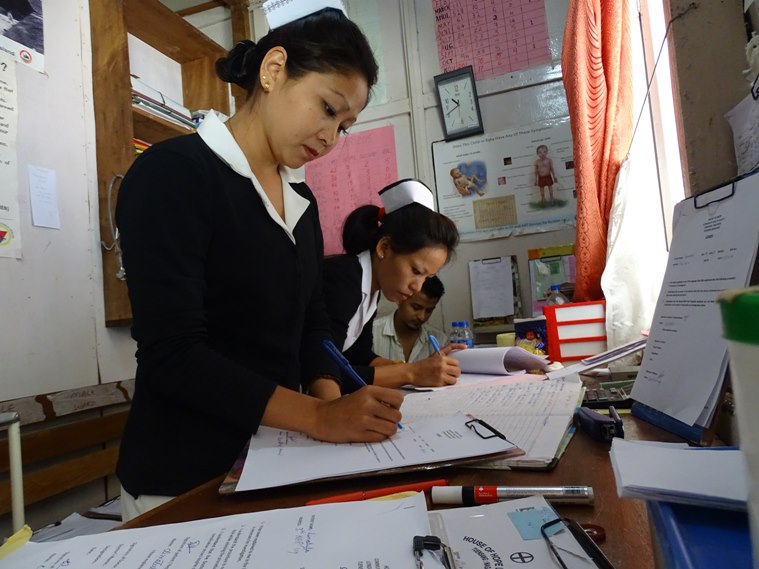 The centre is equipped with ultra sound machine, X-ray and basic lab facilities and open 24 x 7 with a qualified doctor and a team of trained nurses.
The centre is equipped with ultra sound machine, X-ray and basic lab facilities and open 24 x 7 with a qualified doctor and a team of trained nurses.
THE HOUSE OF HOPE
More than two decades later, Chingmak Kejong and Phutoli Shikhu’s influence in the Tuensang, backed by their years of work, is undeniable. “They are a source of hope in the region,” says Tzudir.
Hanso Phang, a 26-year-old from Noksen village, says the couple’s work has “revolutionised” the region. “Young people are talented here, but we rarely get to channelise it because of the years of trouble and conflict,” says Phang. “But that’s what Chingmak’s Eleutherous Christian Society (ECS) has enabled us to do: take ownership of our own problems, and solve them.”
Tuensang falls among the four underdeveloped districts of Nagaland — a long-standing demand by the Eastern Nagaland Peoples’ Organisation is to make Tuensang and three other underdeveloped districts (Mon, Longleng and Kiphire) a separate state. These are arguably the state’s most backward districts, and maybe the country’s too. Governed by a regional council under special provisions given by the Indian Constitution, the district’s remoteness and crucial location on the border (near China and Myanmar) has often led it to be mired in conflict.
“Conflict affects development — and it breeds other vices: corruption, injustice and poverty,” says 54-year-old Chingmak. “While we saw it all around us, what led me to social work was a personal battle. Two of my brothers were heavily into drugs. So for us, when we began working with drug-addicts, it was an organic response to our own problem. In a way, we were fighting our own battle.”
And that is how the couple first started working with drug-addicts — and subsequently, HIV-positive patients in Nagaland. Those days the HIV-rate among antenatal mothers was 8.1 per cent in Tuensang. That was as bad as Namakkal in South India — known to be the worst-affected district — with 8.6 per cent. Chingmak realised it was bad news. It was then that the two started a door-to-door campaign, seeking out needle users, asking them about their drug and sex partners.
“When we were working with HIV, it was a very personal process — we had to protect identity, keep their confidentiality in a small village. It was hard, but slowly people began to trust us,” says Phutoli, 54, who briefly worked with addicts in Hong Kong before coming back to Tuensang to join her husband at the House of Hope. “Yet we lost so many young people. Maybe in the thousands. Whole families would die. It was scary.”
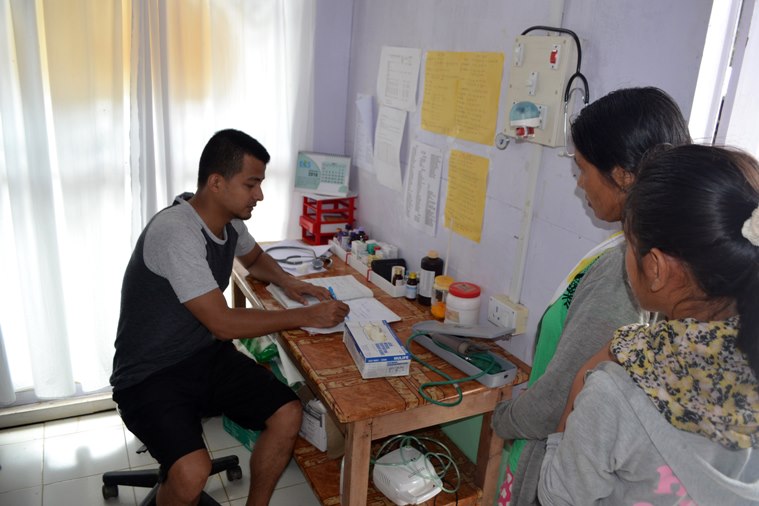 Special focus is on mother-and-child health — for that mothers clubs were formed, anganwadi centres were taken over, camps to raise awareness about pre- and post-natal care were held.
Special focus is on mother-and-child health — for that mothers clubs were formed, anganwadi centres were taken over, camps to raise awareness about pre- and post-natal care were held.
Yet in the first 12 years, they treated 656 HIV patients, soon deciding to partner with the Church to support people with HIV. “The outcome was overwhelming,” says Chingmak.” In 2001, the prevalence of HIV among injecting drug users was 34.6 per cent but now it is below 1.8 per cent. HIV rate among antenatal mothers is now below 2 per cent” states a report by the ECS.
“Half the problem was stigma related to HIV — we tried to normalise it for the patients. So that they would come forward, use our services in a safe space,” says Chingmak.
Tzudir recalls how the centre was a mix of spirituality and therapy. “We had our own routine, we would collect firewood, cook for ourselves, and focus on developing our own individual identity.”
More than two decades later, the House of Hope, located in Tuensang district’s Longpang village, has metamorphosed from a drug addiction rehabilitation centre with ten beds to a hospice for HIV-positive patients to a full-fledged Primary Health Centre, complete with round-the-clock medical professionals.
“But through its many faces, it has consistently served as one thing: a place for dialogue. The centre has visitors from three districts, and several (often warring) tribal groups. They might have had issues over land or boundaries but being the only health facility in the region, warring parties often meet here — and it becomes a place of resolution,” says Chingmak.
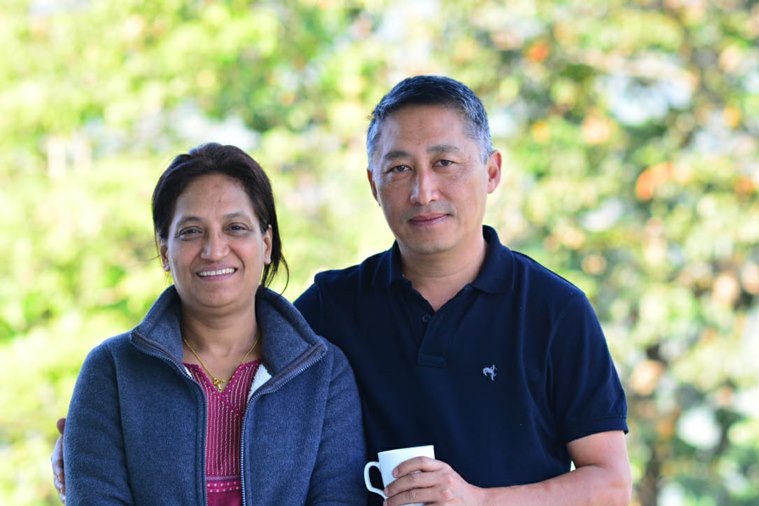 Chingmak Kejong and his wife Phutoli Shikhu have been working to rebuild lives in Nagaland’s remote Tuensang district since the early 1990s.
Chingmak Kejong and his wife Phutoli Shikhu have been working to rebuild lives in Nagaland’s remote Tuensang district since the early 1990s.
A COMMUNITY’S BATTLE
Chingmak’s foray into social work happened suddenly, on a stormy afternoon in the early 1990s, when he was a practising pastor in the village church. “One afternoon, after service I was helping out at the school. Suddenly, I heard a cry and I rushed to find a woman sobbing hysterically,” recalls Chingmak. The child was ill, and to buy rice for the child the lady had gone to sell some fish her husband caught. But by the time she got home, the baby had died. “The scene was heartbreaking — it was raining, and this woman held her child shivering and crying,” he says.
It was then that he asked himself if just by preaching on a Sunday he was doing enough. Chingmak then left the church to immerse himself in social work. “I did not even know what the term ‘NGO’ meant but I knew I had to help.”
Towards the latter part of the decade, the House of Hope began functioning as a Primary Health Centre. In 2009, the ECS signed an agreement with the government of Nagaland to run it as the first public private partnership (PPP) mode Primary Health Centre (PHC) in the state. “This was essentially a six-bedded hospital, but the community has increased the same to a 35-bed facility. The centre is even equipped with ultra ultrasound machines, X-ray and basic lab facilities,” says Chingmak. The facility is open 24×7 with a qualified doctor and a team of trained nurses.
ECS’s special focus is on mother-and-child health — for that mothers clubs were formed, anganwadi centres were taken over, camps to raise awareness about pre- and post-natal care were held. “This is extremely crucial in a place like Nagaland. Even today, many mothers do not inform others that they are pregnant, mostly for superstitious reasons. During childbirth, ‘strangers’ are not allowed in to their houses. That’s why hospital deliveries are rare and and immunisation rates are low,” says Tzudir. Today ECS caters to almost 84 villages in three districts: Tuensang, Mon and Longleng.
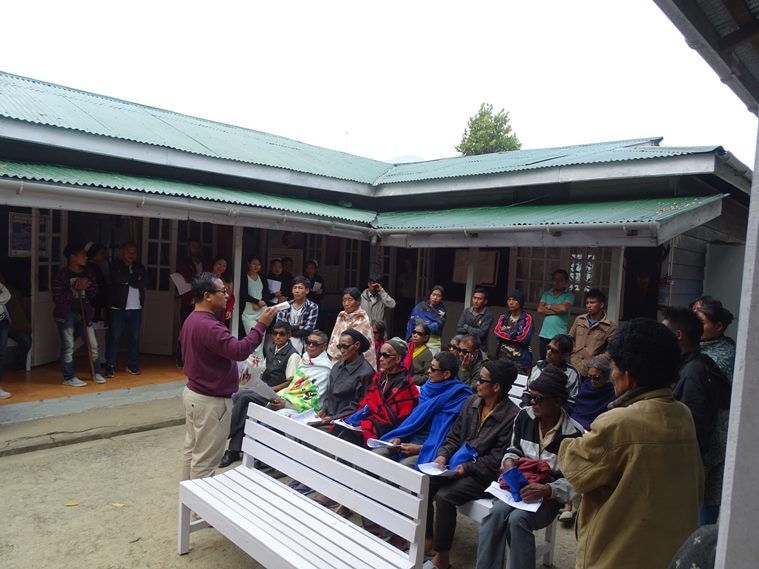 Over the years, the Eleutherous Christian Society (ECS) has run successful immunisation programs, launched education camps, introduced farming and piggery initiatives and instituted water and sanitation projects.
Over the years, the Eleutherous Christian Society (ECS) has run successful immunisation programs, launched education camps, introduced farming and piggery initiatives and instituted water and sanitation projects.
Over the years, they have run successful immunisation programmes, launched education camps, introduced farming and piggery initiatives and instituted water and sanitation projects. Most are in partnership with the government. They have also received grants from companies like Wipro, HCL and Kissan.
But their scope is not limited. In December, ECS helped locals build a 50-foot bridge that connected five villages to their district headquarters — a demand for over 70 years. “They can make anything happen — it is because they include the community and encourage them to take ownership of their problems,” says Phang.
There was time in Tuensang, Chingmak recalls, when shops would open at 9 am and close at 3 pm, schools would be most shut and offices defunct. “But now things have changed: shops are open, children not only go to school, they go on to get their doctorates too,” says Chingmak, “This makes me happy — but I do not think I did much at all. This was the community’s battle, and they have fought it.”


